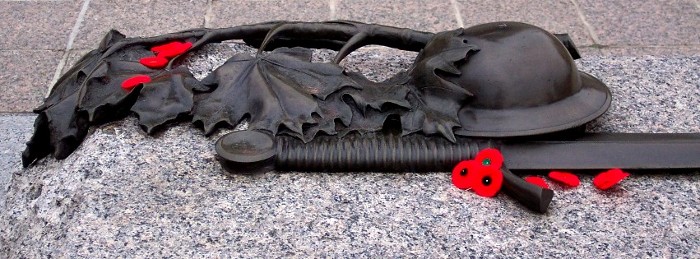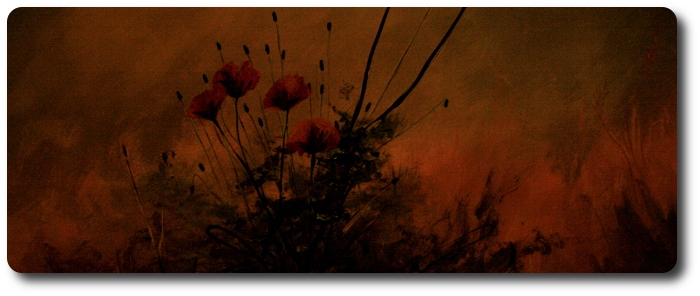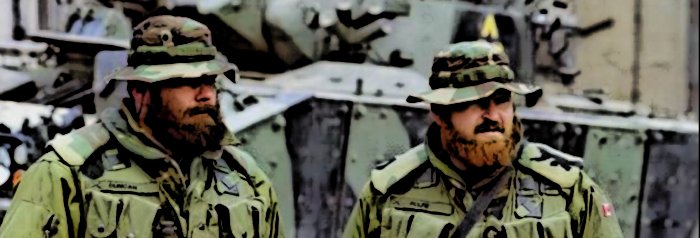Topic: Commentary

How the Legion Halls are Failing Todays Veterans
Michael M. O'Leary
The Royal Canadian Legion (RCL) continues to promote itself as the voice of the Canadian veteran in dealing with the Government and other national agencies. Despite the upsurge of splinter veterans' groups, admittedly the result of so many ex-service members being made to feel unwelcome in Legion halls because they were not official "big 'V' Veterans" under the old rules, the RCL continues to dominate the discussions that influence change, Many of those splinter groups are represented, at the media face of their operations, by angry representatives whose vitriolic speech achieves little but a hardening of the bureaucracy to not be held hostage to empty threats and bombast.
But the Royal Canadian Legion has its own problems. Most significant among these is the disconnect between the institutional goals of the RCL to support and help veterans, and the local goals of Legion branches to sustain brick and mortar Legion halls and their perpetual schedules of dart and euchre tournaments, fish fry dinners, and how to keep the lights on over the horseshoe pits. Increasingly, these Legion branches have been run by committees with no (or very few) ex-serving members among themselves or, in some cases, among their membership at all.
Many Legion branches have reached the point where they have little connection to, or understanding of, the needs of younger veterans as individuals. Most of the veteran care initiatives they have brokered over the past few decades have been geriatric care issues. This lack of connection is especially so in regard to young, newly released (or even still serving) soldiers, sailors and airmen (and women). Much of this disconnect comes from a failure to understand what the Legion hall did in its original conception, and how that served the veterans who frequented them in the early days of the institution.
As anyone who has been watching the explosion of on line discussions about actually helping and supporting new veterans will realize, the most valuable resource they need and capitalize on is effective communication. This is not communications with existing veteran organizations, or with Government agencies, it is communications among themselves. Nothing has changed from the days when their grandfathers and great-grandfathers returned from the wars of their respective generations.

Many of the Legion branches across Canada trace their roots to the years after the First World War or the Second World War. They were formed by local veterans who, by sheer demographic participation, were present in platoon and company and battalion sized groups in large and small towns across the country. I use those specific terms for their groups intentionally. In the First and Second World War, it was most likely that men who knew one another enlisted together. They joined the same units, trained together, and served together. They came home to the same towns, having shared the same experiences, having lost the same friends, and were there to remember and to represent that service and loss to the families of their friends whose sons, brothers and fathers did not return. The evolution of the Legion halls was a natural formation of structure around the soldiers, sailors and airmen with shared service who found comfort and communication among themselves, Their connection was not that they had served, but that they had served together.
Today, new veterans don't join the Legion, and the Legion doesn't really understand why. Legion executive members without military service see the Legions as "places where veterans gather" and have no personal experience to understand the essential context of shared experience which leads to the needed levels of inter-communication between veterans. Those executives confuse what the Legion halls became over 60 or 80 years with what their original purpose in supporting returned veterans was. What the modern veteran needs, the current Legion branches with their halls and bars cannot provide.
So, what are the new veterans doing? They are seeking and developing ways to communicate, with each other. Not just with other veterans, but with the veterans they served with, the same benefit those veterans of the World Wars found in their hometown Legion halls with the fellow Legionnaires that they served with. The new veterans are building, in the online environment, exactly what their predecessors used to have. The existing Legion halls have no role in the way this informal communication network is evolving. In fact, the way the new veterans are building their own virtual groups is completely foreign to most of the current generation of Legion executive members and only by radical change will the Royal Canadian Legion be able to repurpose their facilities to serve the new generation of veterans.
The new veterans aren't looking for bars, they're probably the first generation of veterans that widely understand that taking your hurting friend to the bar is probably one of the worst options in assisting him in getting help. They also aren't looking for halls, those Legion branch halls that grew out of the need for the original Legionnaires' children and grandchildren to have a place for wedding receptions, and to have dances and expanded games events for married Legionnaires as the Branches changed from close-knit veterans support groups into community service clubs. The new veterans are looking for what the original Legion veterans had before worrying about paying an over-extended mortgage on a dilapidated building became the executive's biggest worry.

In the 1920s, an ex-soldier might go to the Legion hall after work on Friday, and sit at the bar next to the guy he shared a trench dugout with for over three years in France. In the 1950s, his son went to the Legion hall and sat beside the guys he crewed a tank with in Normandy. Today's veteran walks past the Legion hall in southwestern Ontario, because he knows his fire team partner went back home to Prince George, British Columbia, and they will possibly never have a weekly chat together in person. He also knows that no-one in that hall can fill that role in place of his fire team partner. So he goes home, logs into the internet and asks his buddy on facebook or by email how he is doing, and sends along one of the photos he took of that friend sleeping against a mud brick wall in Afghanistan. They connect, they talk, they check up on one another, but the current Legion hall has no role because its current format does not serve their needs.
Want to revamp your branch's Legion hall? Sit down with a few of the new veterans (you know the ones, some of them are barely out of their teens) and ask what they'd like to see. It may be time to tear down half your bar and install a modern coffee facility, and train your bartender to be a decent barista. Ask how they talk to their fellow soldiers, the ones they served with that now live a thousand miles away. It may be time to install a wifi network, add internet terminals in quiet rooms, and video conferencing capabilities that let them see each other and talk to one another, or even to play video games with each other across that digital divide (because they are not going to be joining your euchre league any time soon). Build communication networks, ones that multiple veterans in Legion halls across the country can use to share a discussion. Facilitate the communication they are seeking, don't presume to be the people they want to talk to. In this way, there's a chance for the RCL to provide what the Legion halls did for past generations, but it needs the realization that the bar was a place to sit and talk; it was not a purpose in itself.
Today's veterans aren't looking to immediately become the new generation of blue-jacketed Legionnaires at Remembrance Day ceremonies. But they do have the same needs as the veterans of the 1920s and 30s, and of the 50s and 60s. They need to be able to talk to each other as the most important capability the RCL can provide them. The challenge comes from the fact that they don't live in the same towns the way those earlier generations of veterans did. But that's ok, the means and technology exist to support their needs. All it will take within the Royal Canadian Legion is the will to make it happen, both at the institutional level and in the individual branches across the country.

